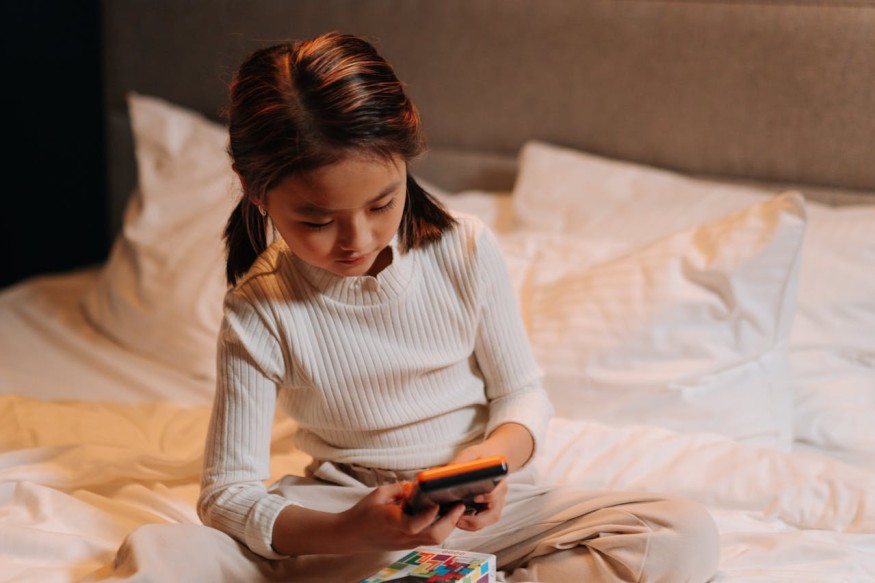
A new study has found that going to bed past 10 p.m. and using screens for over 30 minutes before bedtime are linked to a heightened risk of childhood obesity and reduced adherence with the Mediterranean diet among children.
Screen Time Before Bedtime, Sleeping Late
The findings, noted in the "Late bedtime combined with more screen time before bed increases the risk of obesity and lowers diet quality in Spanish children" study, stresses that a notable percentage of children (35.2% of school-age kids and 27.5% of preschoolers) spend over 30 minutes using screens before going to bed.
The study was based on data gathered via online surveys of 1,133 children across Spain. Among these children, 545 of them were two to four years of age, while 588 of them were five to twelve years old. Questionnaires looked into screen device usage, sleeping habits, and other indicators, such as body mass index and diet.
María Fernanda Zerón-Rugerio, the study's first author who is a professor from the Faculty of Nursing, a researcher at the University of Barcelona's Food and Nutrition Torribera Campus and the Institute for Research in Nutritional Nutrition, and a member of the INSA (Institute for Research in Nutrition and Food Safety), explains that they observed that school-age and preschool children with more nocturnal sleeping habits and how spend more screen time before bedtime are at higher risk of developing obesity or being overweight. This is in comparison to other children who sleep early and do not watch the screens before going to bed.
The researchers also discovered that the mix of the two behaviors led to poorer sleep quality and shorter nighttime sleep duration in both schoolchildren and preschoolers. Such variables were linked to delayed dinner and breakfast times, especially as the children grew older.
On top of this, the school-age children with the mixed unhealthy habits were also less physically active and experienced social jet lag that is greater.
The researchers note that this is prevalent among people who sleep late. Late sleeps need to adjust their wake-up time in order to fit their schedules rather than ensure that their sleeping needs are met. Resultantly, they end up sleeping less and building up sleep debt across the week. Previous studies have associated this situation with daytime sleepiness, poor academic performance, and irritable mood.
ALSO READ : Screen Time for Toddlers Below 2 Years May Harm Their Sensory Development, Study Reveals
Only Few Children Sleep Early, Do Not Use Screens
Findings revealed that roughly half of the school-age children and toddlers (45.1% and 50.5% respectively) who were surveyed spend one to thirty minutes engaging in screen time before bedtime. In the meantime, 35.2% of schoolchildren and 27.5% of preschools spend over half an hour with the screens. The results revealed that just 11.7% of school children and 14.2% of preschoolers went to bed early and did not use screens.
The sleep schedules of the participants came as a surprise to the researchers. They note that they discovered that children usually go to bed at 10 in the evening. Since it is recommended that children sleep for ten to twelve hours, this shows that several children do not get adequate sleep.
With this situation, the experts suggest making bedtime earlier and reducing screen exposure before bedtime. Ideally, screens should be altogether avoided at least an hour before bed time. The American Association of Pediatrics also supports these recommendations.
The researchers also note that in the case of children, it is important to address lifestyle factors that can be modified and obesity prevention. This is important for the promotion of health development and growth. These are areas of modern lifestyles that are linked to unhealthy eating habits and lower adherence to eating patterns that are healthy. If such habits are sustained, obesity could potentially result.
RELATED ARTICLE : 5-Hour Screen Time Can Make One Pee More at Night
Check out more news and information on Kids' Health in Science Times.
© 2025 ScienceTimes.com All rights reserved. Do not reproduce without permission. The window to the world of Science Times.











